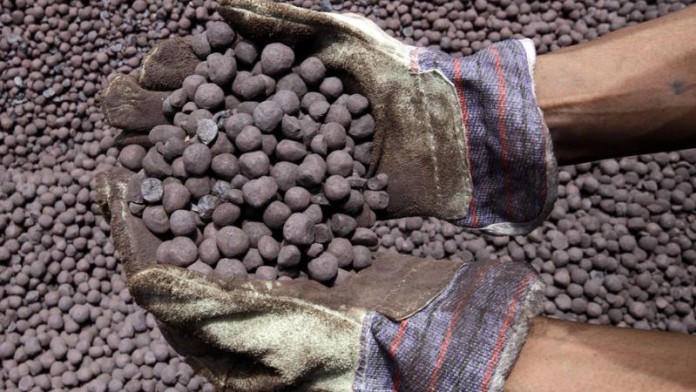
STRONG iron ore and platinum group metal (PGM) prices resulted in record interim headline earnings and a doubling in the dividend year-on-year for African Rainbow Minerals (ARM), the diversified South African mining group.
It announced a R10 per share interim dividend after ending the six months to December 31 with cash of R4.8bn, a R1.1bn improvement on its financial position as of June 30. Headline earnings were R5.01bn, equal to R25.87 per share which compares to headline earnings of R2.2bn or R11.14/share at the same time last year.
Basic earnings were R4.87bn or R24.99/share and included an attributable impairment after tax of R169m in Assmang’s investment in Sakura Ferroalloys, ARM’s Malaysian ferromanganese facility. The manganese alloy price was lower during the period and was one of only two of ARM’s minerals that underperformed in the period.
Other than a R20m mark-to-market reduction in ARM’s 15% investment in Harmony Gold, owing to the year-on-year share price decline of the gold producer, the only major negative for ARM in the six months was the underperformance of its thermal coal assets which it shares with Glencore.
ARM Coal posted an attributable headline loss of R222m in the period as export prices for thermal coal waned. Sales volumes were also lower as a result of reduced offtake from Eskom, the South African power utility, as well as “… logistics and mining challenges.
ARM’s view regarding the continued holding of thermal coal in the portfolio could be one to watch given the trend among diversified mining firms, including BHP, Rio Tinto and Anglo American to give up their thermal coal positions.
“The outlook for thermal coal remains of concern as improving prices for competing energy sources and increasing demand for clean energy becomes more pressing,” said the group in a commentary to its published results.
Glencore, its joint venture partner, has set out a path of depleting its coal reserves rather than selling them. It expressed interest recently in buying the shares in coal held by its joint venture partners.
Mike Schmidt, CEO of ARM, said in a presentation to analysts today that demand from India, in particular, had been particularly hard hit. As a result, the group’s coal mines had been shut for four weeks over the year-end period. He was confident of recovery.
“Looking forward, we see a better set of results over the next six months,” he said. Logistical problems related to the effect of Covid-19 related lockdowns over the operations of Transnet, the state-owned transport company, had also eased.
ARM echoed the bullishness of recent comments from South Africa’s PGM producers, saying the outlook for palladium, rhodium, and – increasingly – platinum remained strong.
“We believe that the medium to long-term fundamentals of PGMs are robust as supply remains constrained and demand is expected to be supported by the role of PGMs in clean mobility through hydrogen technology,” it said.
Schmidt said there was significant potential to expand the firm’s Modikwa PGM mine beyond current plans to grow annual PGM production to 400,000 oz/year over the next three years. “It is not the end of the road for Modikwa,” he said.
“It will need to meet its current hurdles but there is no reason it could not expand further. We have got about 100 years of resources and it has a unique opportunity.” Schmidt added that mining “overlying Merensky” ore was a possibility as all metals in the PGM suite were likely to see extended supply deficits.
There was little new information, however, on ARM’s plans to get back into the copper business. Patrice Motsepe, executive chairman, said opportunities were being looked at but the group was mindful of spending cash carefully.









